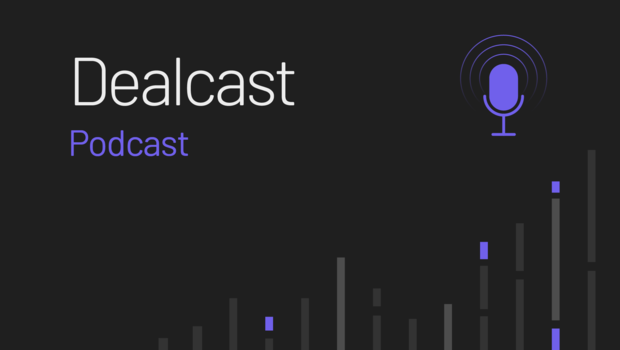Could Microsoft’s Acquisition of Activision Blizzard Be Blocked by Regulators?
4 November 2022
In January 2022, Microsoft announced its USD 68.7 billion all-cash acquisition of Activision Blizzard, a purveyor of blockbuster video game franchises including Call of Duty, Guitar Hero and Diablo.
In this week’s episode, we’re looking at regulatory approval of this year’s largest mergers and acquisitions (M&A) deal. Joining us to discuss the transaction is Jacob Parry, chief regulatory correspondent of EMEA at PaRR/DealReporter.
Listen, and you’ll learn about:
- Significance of the deal on the gaming industry
- U.S., European and U.K. antitrust regulators’ concerns about the transaction
- Objections to the deal by Sony and Google
- What to expect from the Federal Trade Commission’s review of the transaction
- Timeline of when the deal might close
- Potential termination fee of USD 2.27 billion
Dealcast is presented by Mergermarket and SS&C Intralinks.
Transcript
[MUSIC PLAYING] JULIE-ANNA NEEDHAM: Welcome to Dealcast, the weekly M&A podcast presented to you by Mergermarket and SS&C Intralinks. I'm Julie-Anna Needham, a business journalist who's been covering M&A for a decade. In this episode, we're looking at regulatory approval of a huge deal in the gaming industry, Microsoft's takeover of Activision Blizzard, which makes Call of Duty widely seen as one of the most successful gaming franchises ever. I'm joined by Jacob Parry, senior regulatory reporter for PaRR and DealReporter.
[MUSIC PLAYING]
Hi, Jacob, and welcome.
JACOB PARRY: Hi, Juliana. Thanks for having me.
JULIE-ANNA NEEDHAM: So firstly, can you tell us how significant this deal is for the gaming industry and the wider technology and gaming ecosystem, an area which is fast evolving.
JACOB PARRY: So a bit of background. In January, Microsoft announced that it would acquire Activision Blizzard, the maker of some of the world's best-selling game franchises, Call of Duty, World of Warcraft, Candy Crush, at a USD 68.7 billion dollar purchase price. This clocks in as the biggest deal of the year to date, and that really reflects the value of Activision's content to the booming video game sector.
There's really multiple different ecosystems at play here. We have the booming console business that continues to reap rewards for Microsoft, Sony, and Nintendo. Then we also have an emerging cloud gaming business. And we're increasingly seeing multiple players, both traditional studios, like Electronic Arts and Ubisoft, but then also new big tech entrants, like Apple and Amazon, move into this space.
Finally, I'll just mention that this is a deal where there's significant regulatory risk and that has really been reflected in Activision share price. Its shares are currently trading at 25 percent below Microsoft's USD 95 per share offer price. That reflects a little bit the slump in the tech sector, this year deal size, and the fact that there's quite a long timeline associated with the transaction. But really what's at issue in the volatility here is the uncertainty around the regulatory processes.
JULIE-ANNA NEEDHAM: Right. So we're going to look at some of those in detail now. As you mentioned, the deal was announced in January. And it's recently been notified to the EC after long pre-notification talks. What is it that the regulators in Europe are so concerned about in relation to this deal?
JACOB PARRY: The European Commission and the U.K. Competition and Markets Authority have honed in on Microsoft's potential to foreclose its competitors in the gaming space by potentially refusing or worsening access to other gaming platforms to Activision's catalog of video games. For those of you who are not gamers, Microsoft is the owner of Xbox, which is one of the leaders in the console business after Sony's PlayStation. And Microsoft's ability post-transaction to limit what games, and in particular Call of Duty, are accessible to PlayStation users has really emerged as the key issue, both in the public debate and also according to our reporting in the review of the transaction.
This is not just about the console business. Gaming is increasingly moving away from consoles and PCs and into the cloud as I mentioned. And the CMA has really focused its concerns, in addition to vertical foreclosure, also on Microsoft's ability to leverage other assets, like its cloud platform Azure or its PC operating system Windows to damage competition in the nascent market for cloud gaming services.
JULIE-ANNA NEEDHAM: And you've mentioned there, that the system, the ecosystems are changing in the gaming industry. Would this deal have been so heavily scrutinized a few years ago?
JACOB PARRY: A deal this size would have been heavily reviewed at any point in time. That said, the willingness of the agencies, and particularly the CMA to look beyond traditional theories of harm, like vertical foreclosure and more novel theories, such as Microsoft's ability to tip or take such a leading position in the gaming market that other new competitors can't catch up reflects a bit of a new orthodoxy within the agencies. There's a shifting consensus within the competition authorities as to what they should focus on.
And increasing years, there's been-- we've seen agencies hone in on concerns around innovation and on the ability of companies to envelop markets. When they look at digital markets, they see extremely powerful network effects, and a massive amount of capital that companies like Microsoft or its other GAFA peers can invest. And when they look at their potential competitors, they see that they don't have that. And their concern, as we've seen in the words of Associate Attorney General John at the Department of Justice, Jonathan Kanter, is that they could create moats that other competitors aren't able to penetrate.
Finally, I'll say that when it comes to the European Commission's review, Microsoft has a long history in Brussels. And through the course of the 2000s, it was a heavy focus of EC enforcement. The European Commission's case against Windows really set the tone for big tech enforcement in the decades that followed. Microsoft has gone to great lengths to close that chapter and to reset its relationship with the regulator. And even in this case, it took a quite proactive stance, offering concessions to Sony around PlayStation.
That said, it's still subject to antitrust complaints here in Brussels, from Slack concerning the alleged bundling of its team products, from the OVH cloud, the French cloud provider, concerning the terms that it offers on Azure. The EC has a long memory and we're in a very anti-big tech political context, both here in Brussels and also in Washington. And I'd say that that definitely makes regulatory clearance a more challenging task than it might have been a few years ago.
JULIE-ANNA NEEDHAM: Thanks. And so a lot going on within the EC scrutinizing this deal. But it's not just the EC and the U.S. Federal Trade Commission examining it, but we've also got the U.K. Competition and Markets Authority, alongside other authorities. Are the E.C. and the U.K. CMA on the same page with this? And has Brexit impacted that relationship?
JACOB PARRY: So this is a really interesting development. And I think that the dual review of the CMA and the EC is going to be another test case of the evolving relationship between the two agencies. As a bit of context, global merger control has historically really been dominated by three agencies, European Commission in the E.U., and in the U.S., the Federal Trade Commission and the Department of Justice. One of the more significant developments in global merger control in recent years has been the CMA's emergence as a heavy hitter on the global stage, following the U.K.'s exit from the E.U. two years ago. The CMA since then has had a remit over global deals that historically would have exclusively gone to Brussels.
While the agencies have a cordial relationship and are very much aligned philosophically, there is no day-to-day working agreement between the E.U. and the U.K., which affects how they can cooperate substantially on files. And other factors like the comparatively weaker role that UK courts play when it comes to scrutinizing merger control decisions vis-a-vis the role that the EU courts play have led the CMA to subtly diverge from the European Commission.
A good example would be the European Commission's decision to clear Konecranes merger with Cargotec. It was a Finnish crane deal earlier this year that was blocked by the CMA and ultimately fell apart. There was a bit of bitterness after that deal and some finger-pointing, just as we had two comparably similar sets of facts between the U.K. and the E.U., yet we ended up with quite different decisions.
Finally, the CMA's leadership has been quite critical of the European Commission's decision-making practice in digital merger cases. The former head criticized the commission quite heavily for the decisions that the commission took to clear Facebook's acquisitions of WhatsApp and Instagram. As with those cases, it can't be discounted that the CMA might take a bolder approach when it comes to this deal.
JULIE-ANNA NEEDHAM: So it sounds like the CMA is using the opportunity to flex its muscles a bit.
JACOB PARRY: I think that's a fair assertion.
JULIE-ANNA NEEDHAM: And as you highlighted earlier on, one of the most vocal opponents to this deal has been the PlayStation maker Sony, which isn't surprising as it's another major player in gaming. Can you explain in a bit more detail why is Sony concerned about the deal, and what the company has been doing about it?
JACOB PARRY: It was clear from the outset that Sony's interest would be key to the regulatory reviews that the deal would see. Again, the console gaming market really has three players, Nintendo, Sony's PlayStation, and Microsoft's Xbox. And two of those, Xbox and Sony's PlayStation, are both incredibly dependent on the content that Activision provides.
Sony has argued that Activision's titles, in particular Call of Duty, are essential to its success. And Microsoft has recognized the importance of Sony from the outset, as we saw with the pledge earlier this year to retain Sony's access to Call of Duty through to 2027. Microsoft has also indicated that it would be prepared to codify some version of this pledge in commitments.
That promise, in the view of Sony, is both unenforceable and insufficient. Early last month, according to our reporting, Sony Interactive Entertainment CEO Jim Ryan was in Brussels to put forward his argument against the deal. Publicly, he's been saying that the pledge is inadequate and that he would like to see, not just Call of Duty, but other Activision titles available to PlayStation users beyond 2027.
In its filings in Brazil, Sony said that Call of Duty, a, had no rivals, b, that it's essential to the PlayStation console, and finally, that the inclusion of Activision Blizzard's titles in Xbox's Game Pass, which is the cloud gaming service that's really the future of video gaming, would mark an inflection point in the market for video games.
Finally, I should add that, at least according to our reporting, it's not just Sony that has concerns. Google too is believed to have concerns around the impact of the transaction. Both Microsoft and Google spend heavily on cloud computing and I think that the recent announcement by Google that it would shutter its cloud streaming gaming service Stadia reflects how difficult it is to compete without must-have content like Activision's titles.
JULIE-ANNA NEEDHAM: I'm looking a bit further afield now. What about the Federal Trade Commission in the U.S.? The FTC chair, Lina Khan, has developed a reputation as a serious opponent to big tech companies. What are you expecting to see from her agency?
JACOB PARRY: From what we know now, according to our reporting, the agency is expected to come to a decision as soon as late November, and it's aiming to wrap up its review by the end of the year. The FTC's staff is understood to have significant concerns and began conducting depositions with executives from the merging parties late in the summer. The million-dollar question at the moment is, will Lina Khan's FTC decide to sue against the deal?
The FTC under Chair Khan has been very hawkish when it comes to merger control, most recently challenging Meta's acquisition of Within, a small virtual reality fitness tech company. Of course, we've also seen the FTC lose in recent cases. Most notably, it lost its decision to challenge Illumina's acquisition of GRAIL which was overruled by the FTC's own administrative law judge even though it is now under appeal. Whether that general atmosphere to challenge every deal that comes before it translates into a willingness to challenge, this deal is something that we will just have to wait and watch for.
JULIE-ANNA NEEDHAM: Thanks very much, Jacob. So one final question for you, a bit of crystal ball gazing. The deal was announced in January. When is it going to complete, if indeed it does complete?
JACOB PARRY: On the regulatory side, I think we'll really be waiting to see the decision from the CMA next March. Of course, the European Commission's decision on whether or not to put it into a phase two review will also decide whether or not there's an ongoing review here in Brussels through the spring of next year. In terms of the deal's own deadlines, Microsoft has set a termination date of January 2023, which can be extended twice up to July 2023. Microsoft has said that it expects to close the deal in the fiscal year 2023. And I should note that should it be unable to acquire all the necessary regulatory approvals, Activision would be required to pay Microsoft a termination fee of US 2.27 billion.
JULIE-ANNA NEEDHAM: Wow, something pretty hefty.
JACOB PARRY: This is — it's not small change, Julie-Anna.
JULIE-ANNA NEEDHAM: No. All right, we'll leave it there. Jacob, thanks very much.
JACOB PARRY: No, thank you. Julie-Anna, and thank you, Jenny, as well.
JULIE-ANNA NEEDHAM: That was Jacob Parry, senior regulatory reporter for PaRR and DealReporter. Thanks for listening to this week's episode of Dealcast presented by Mergermarket and SS&C Intralinks. Please rate, review, and follow the podcast. You can find us on Apple podcasts, Spotify, or look out for your Mergermarket news alert. For more information, have a look at our show notes. Join us next week for another episode.
[MUSIC PLAYING]


